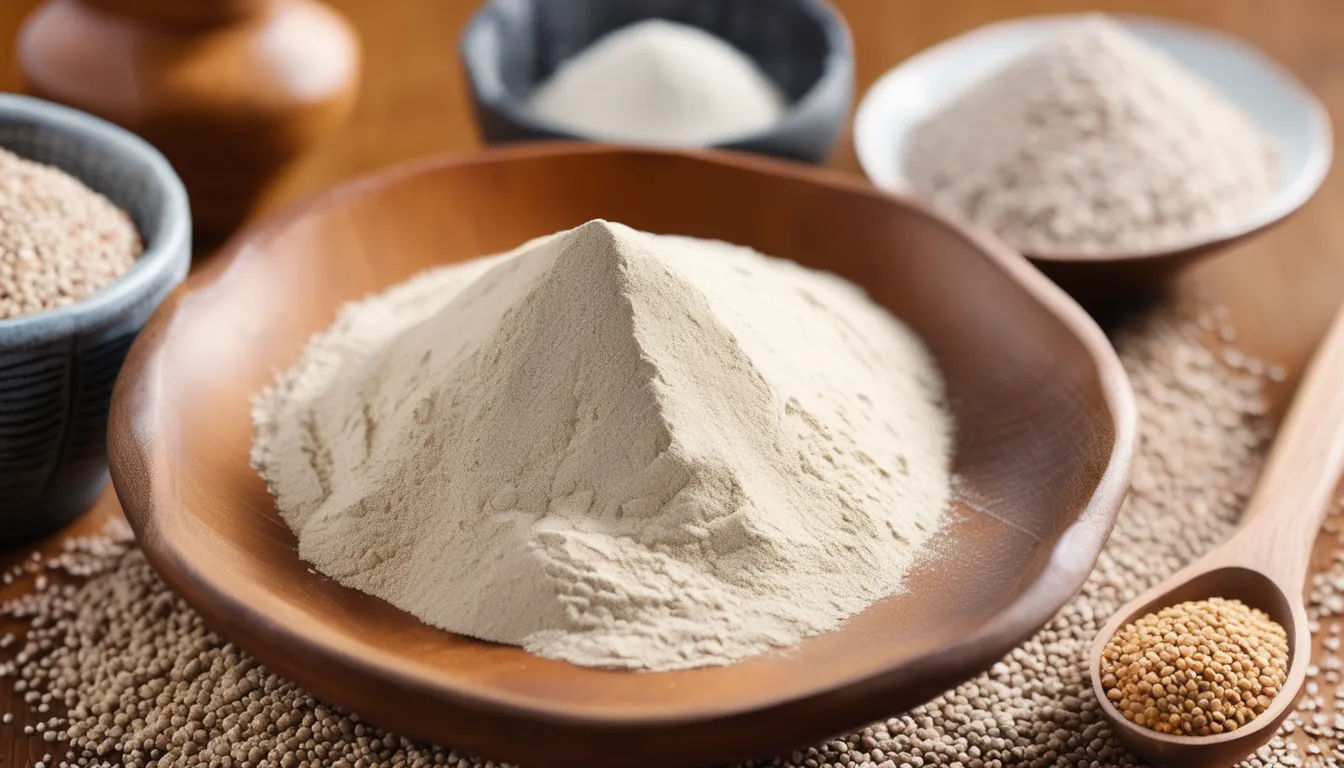When it comes to exploring the connection between buckwheat flour and longevity, you might be intrigued by the compelling evidence suggesting that this humble ingredient could hold the key to a healthier, longer life. With its array of nutrients and health-promoting properties, buckwheat flour has been garnering attention for its potential impact on overall well-being. But what exactly makes this grain so special in terms of enhancing longevity? Stay tuned to uncover the fascinating insights into how incorporating そば粉 into your diet could pave the way for a healthier future.
Health Benefits of Buckwheat Flour
Buckwheat flour is a powerhouse of nutrients that can significantly boost your overall health. Packed with vitamins, minerals, and antioxidants, this gluten-free flour is a great addition to your diet.
Rich in fiber, buckwheat flour promotes digestive health by supporting regular bowel movements and feeding the beneficial bacteria in your gut. Its high protein content helps in muscle repair and growth, making it an excellent choice for those looking to build or maintain muscle mass.
Additionally, buckwheat flour is known for its ability to help regulate blood sugar levels, making it a valuable option for individuals managing diabetes or looking to stabilize their energy throughout the day.
The nutrients in buckwheat flour also support heart health by helping to reduce cholesterol levels and improve blood flow. By incorporating buckwheat flour into your meals, you can enjoy a range of health benefits that contribute to your overall well-being.
Nutritional Value and Longevity
Harnessing the power of buckwheat flour’s nutritional value can potentially contribute to longevity by supporting overall health and well-being. Buckwheat flour is a nutrient-dense ingredient that offers a wide array of vitamins, minerals, and antioxidants. When incorporated into your diet, it can enhance your overall health, potentially leading to a longer and healthier life.
Here are five key nutritional benefits of buckwheat flour:
- Rich in Fiber: Supports digestive health and helps regulate blood sugar levels.
- High in Protein: Essential for muscle building, repair, and overall body function.
- Packed with Antioxidants: Protects cells from damage and reduces the risk of chronic diseases.
- Good Source of Magnesium: Important for heart health, muscle function, and energy production.
- Gluten-Free: Suitable for individuals with gluten sensitivities or celiac disease.
Buckwheat Flour and Aging Process
As we age, our bodies undergo various changes that can impact our overall health and well-being. The aging process can lead to a decline in certain bodily functions, such as digestion and metabolism. This can result in reduced nutrient absorption, making it crucial to consume foods that are easily digestible and nutrient-dense, like buckwheat flour.
Buckwheat flour is rich in antioxidants, vitamins, and minerals that can help combat the effects of aging. Antioxidants in buckwheat flour, such as rutin, protect cells from damage caused by free radicals, potentially slowing down the aging process at a cellular level.
Additionally, the vitamins and minerals in buckwheat flour, like B vitamins and magnesium, play essential roles in energy production, brain function, and muscle health, which can all be affected by aging.
Longevity Studies and Findings
Aging is a natural process that impacts various aspects of our health and well-being, including how our bodies function and respond to external factors. Longevity studies have delved into the factors that can potentially extend a person’s lifespan and improve overall health. Here are some key findings:
- Regular physical activity has been linked to increased longevity and a reduced risk of chronic diseases.
- Consuming a balanced diet rich in nutrients, antioxidants, and whole grains like buckwheat flour can support longevity.
- Managing stress through techniques such as meditation and mindfulness may positively impact longevity.
Social connections and maintaining relationships with friends and family have been shown to contribute to a longer and healthier life.
Getting quality sleep is crucial for overall health and longevity, as it allows the body to repair and rejuvenate itself.
These findings highlight the importance of lifestyle factors in promoting longevity and overall well-being.
Incorporating Buckwheat Flour in Diet
To enhance your diet and potentially support longevity, consider incorporating buckwheat flour as a nutritious and versatile ingredient.
Buckwheat flour is a gluten-free option rich in antioxidants, fiber, and essential nutrients like magnesium and copper. Start by swapping a portion of your regular flour with buckwheat flour in baking recipes for a nutty flavor and added health benefits.
You can use it to make pancakes, muffins, bread, or even as a thickener in soups and stews. Experiment with buckwheat flour in savory dishes like buckwheat noodles or crispy coatings for fried foods.
Adding buckwheat flour to your diet can help regulate blood sugar levels, improve heart health, and aid digestion. Remember to store buckwheat flour in an airtight container in a cool, dark place to maintain its freshness.
With its unique taste and numerous health benefits, incorporating buckwheat flour into your meals can be a simple yet impactful way to boost your overall well-being.
Frequently Asked Questions
Can Buckwheat Flour Be Used in Gluten-Free Baking?
Yes, you can use buckwheat flour in gluten-free baking. It adds a nutty flavor and a hearty texture to your baked goods. Buckwheat flour is a great alternative for those with gluten sensitivities or celiac disease.
Is Buckwheat Flour Safe for Individuals With Celiac Disease?
Yes, buckwheat flour is safe for individuals with celiac disease. It is a gluten-free alternative that can be incorporated into your diet. Enjoy the benefits of buckwheat flour without worrying about gluten-related issues.
What Are the Environmental Benefits of Growing Buckwheat?
Growing buckwheat benefits the environment by improving soil health, preventing erosion, and attracting beneficial insects. It requires minimal water and no fertilizers, making it a sustainable crop choice that supports biodiversity and reduces agricultural impact.
Does Buckwheat Flour Have Any Negative Side Effects?
Buckwheat flour generally doesn’t have negative side effects. It’s gluten-free but may trigger allergies in some individuals. Enjoy it in moderation to avoid potential sensitivities. Remember, consult a healthcare provider if concerned.
Can Buckwheat Flour Help With Weight Loss?
Yes, buckwheat flour can help with weight loss. It is high in fiber, which promotes fullness and aids in digestion. Substituting it for refined flours in your diet can support your weight loss goals effectively.
Conclusion
In conclusion, adding buckwheat flour to your diet can be a simple yet powerful way to boost your longevity. With its nutrient-rich profile and numerous health benefits, this gluten-free option can support your overall well-being, regulate blood sugar levels, and potentially combat aging effects. So why not give buckwheat flour a try and enjoy the potential benefits it may bring to your longevity and quality of life.





